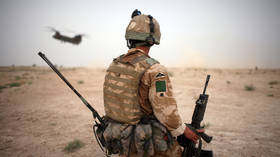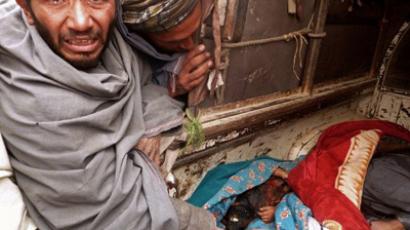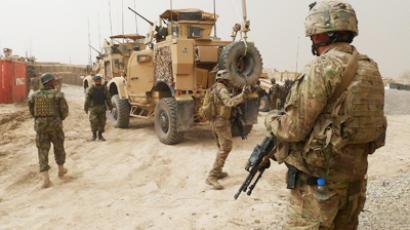‘Afghanistan is better off without NATO’ – minister
The Security situation in Afghanistan is unlikely to deteriorate after NATO troops leave, and might even improve, Afghan Finance Minister Omar Zakhilwal told RT.
“We, the Afghans do not want the international forces be in Afghanistan fighting for us … From the very outset we have to believe that prime responsibility of taking your own security should be the responsibility of Afghans,” Omar Zakhilwal said. “Many of the operations in different parts of the country are carried out by Afghan forces … because they are part of the Afghan nation, their rule will be much more effective and much more positive than the rule of international forces.”However, the minister said there are still parts in Afghanistan not controlled by the country’s authorities, and those are the areas plagued by rampant opium production. “If you look into Afghanistan, it [the opium trade] is closely correlated with insecurity. Places that are secure, that are within our hands – you do not see the production of opium there. It is only in areas where we do not have control over,” Zakhilwal said. “As long as there is insecurity, as long as there are areas out of reach, there will be the production of opium and some of that money goes to traffickers, some of this even goes to the insurgents – it finances insurgents.” However, it is a myth that opium production constitutes a considerable part of the country’s GDP, the Afghan official told RT. “It generates income for farmers. It generates income for the middlemen: business people who connect the international market with the Afghan production. It has a huge market in the recipient countries: in Europe, in Russia, everywhere else. It is again valued at some hundred billion dollars but what gets to the producers, the farmers, is no more than 500 to 800 million dollars,” he said. “So, 800 million dollars as part of 16 billion-dollar worth of GDP this past year is a small percentage.”Despite the expected foreign troop pullout in 2014, the international community will still be committed to supporting the country’s economy and security, Omar Zakhilwal told RT. But in order to become self-reliant, Afghanistan welcomes so-called “transformational investment”. This form of investment would focus on developing commerce and food security in the country, as well as its transportation and electricity infrastructure. “Those are some of the key focuses that we will have in the next decade,” Omar Zakhilwal concluded. Anti-American sentiments have risen drastically in the country following the mass killing of civilians by a US soldier and the burning of copies of Koran at a US military base. But despite the civilian outcry against the American presence in Afghanistan, the US military said that it will withdraw its troops strictly according to plan.














